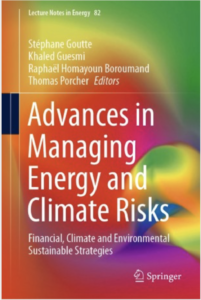
Renewable Energy in the MENA Region: Key Challenges and Lessons Learned
Many pieces of evidence showing that investments in energy transition can boost GDP and create jobs. Further, national and regional energy transitions can help build resilient economies and societies. Therefore, linking short-term actions to medium- and long-term strategies is vital to achieving the Paris agreement on climate change the Sustainable Development Goals (SDGs). In this context, this analysis aims to explore the key challenges and lessons learned regarding the development of renewable energy. The setting of the current study is the MENA countries, as examples of growing economies, most of them experiencing extensive economic and energy reforms. First, we briefly review the demand for renewable energy and the resources available, before examining some of the challenges that need to be addressed to meet deployment targets. Second, we present some case studies to show what is at stake in some countries, the challenges, and the lessons learned. Aggressive RE policies seem to be vital to achieving key energy-policy goals, and the so-called “multiple benefits” of RE in the MENA region, such as addressing climate change and air pollution, improving energy security, and increasing energy access. Policies should be more ambitious to address national challenges and targets and strengthen climate commitments. However, securing strategic financing, investing in transition-related infrastructure, diverting investment from fossil fuels, and making bailouts conditional on climate action should be a cornerstone of national strategies. Read Full Book Chapter Here
22nd April 2021